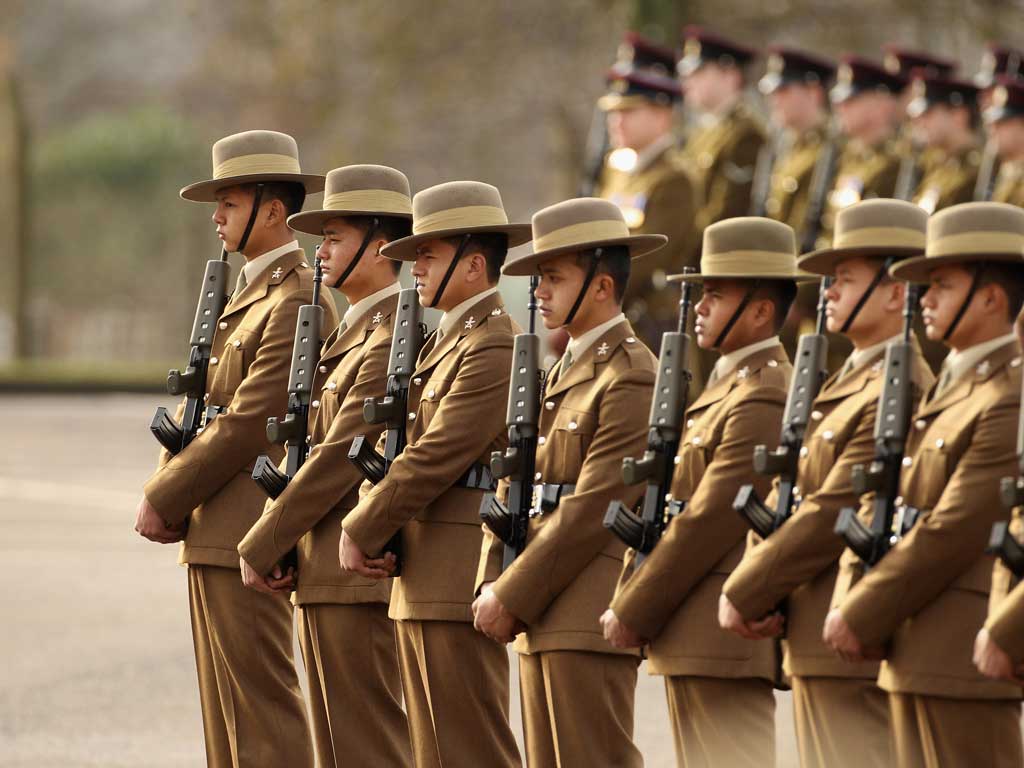Patrick Mercer: Thinking the unthinkable? Not the MoD
How Whitehall won't confront its sacred cows

The Secretary of State for Defence, Philip Hammond, last week confirmed that the regular Army would be cut over the next few years from its current strength of 102,000 to about 82,000.He also made it clear that some of the 20,000 reductions would be found by cutting many famous old regiments.
A succession of defence secretaries over the past few years have overseen a patchy system of mergers that have left some regiments almost unrecognisable and others untouched, all in the name of efficiency, and the current incumbent seems to be cut from the same cloth. Indeed, in a lecture recently, he said that the armed forces must do their work, "... in the most resource-efficient way possible... achieving their outputs with lower inputs".
Despite all the protestations from the Ministry of Defence about efficiency, however, I believe that the rationale for the cuts will be based upon something very different. For instance, the Secretary of State tells us that those units which are under-recruited or heavily topped up with foreign and Commonwealth soldiers are vulnerable. Serving officers tell me that Scotland's regiments fit this description more than any others, and that the Black Watch and the Argyll and Sutherland Highlanders are likely to be chopped. If "efficiency" is the yardstick, then they might face oblivion, but you can bet your bottom dollar that devolution and the voice of Alex Salmond will carry far more weight.
Similarly, there are those who say that the Brigade of Guards should endure some of the pain that other regiments have had to endure. It's true, these five excellent battalions recruit indifferently and they have been largely untouched despite wholesale mergers, amalgamations and disbandments elsewhere. The argument goes that the senior regiments should set an example and sacrifice at least one of their number pour encourager les autres. But, it's worth remembering the words of Harold Macmillan who said, "There are three bodies no sensible man directly challenges: the Roman Catholic church, the Brigade of Guards, and the National Union of Mineworkers." I suspect that such sentiments will still be more influential than any MoD spreadsheet.
The greatest test of all, though, has already been ducked. I've soldiered with Gurkhas; I admire them and see a huge need for them. But many of my former comrades still serving point out that Joanna Lumley's spirited campaign to improve Gurkhas' conditions of service and retirement stripped away their most attractive feature: kukri for bayonet, they were cheaper than British soldiers. Many ask why jobs that should be going to Britons are in fact going to Nepalese. If you apply the "resource-efficient" yardstick, the Gurkhas don't measure up – yet the Secretary of State has already said that both Gurkha Rifles battalions will be spared.
There's no doubt that La Lumley is a formidable political opponent; she made mincemeat of Labour's Phil Woolas when he tried to resist her initiative to help Gurkhas win the right to settle in the UK. Her sparkle makes any politician look dowdy and glamour will always triumph over glum.
While there are sensible plans to expand and refurbish the reserves and Territorial Army, the fighting elements of the regular Army are, I suggest, already perilously small. If numbers have to be reduced in order to save money – and I know that they do – let the Army look to its vast squads of computer operators and staff officers. Better still, let MoD civil servants lead the charge. Our fighting regiments and battalions are the best in the world and to cut even one of them is madness while we are at war and facing a period of great uncertainty. The Army is one of our greatest national institutions and we are in danger of wrecking it – the bottom line must never be allowed to dominate the Thin Red Line.
Patrick Mercer is Conservative MP for Newark

Join our commenting forum
Join thought-provoking conversations, follow other Independent readers and see their replies